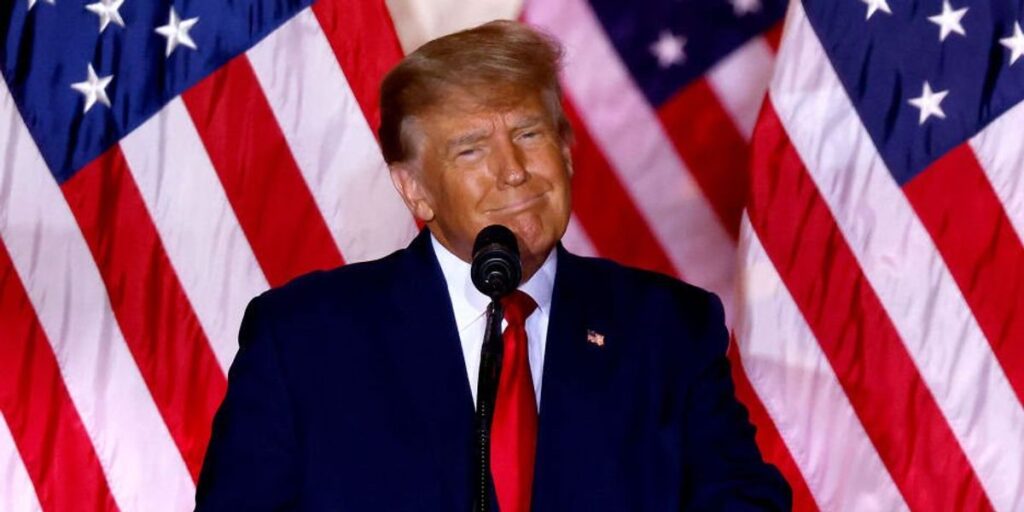Former federal prosecutor Elie Honig explained Monday why Donald Trump cannot be made ineligible to run for president under the Constitution’s 14th Amendment.
Over the weekend, legal scholar Laurence Tribe and former U.S. Court of Appeals Judge J. Michael Luttig published an essay in the Atlantic arguing that Trump, despite not having been convicted of any crime, is constitutionally disqualified to run for president in 2024.
They cited Section 3 of the 14th Amendment, claiming it:
… automatically excludes from future office and position of power in the United States government — and also from any equivalent office and position of power in the sovereign states and their subdivisions — any person who has taken an oath to support and defend our Constitution and thereafter rebels against that sacred charter, either through overt insurrection or by giving aid or comfort to the Constitution’s enemies.
But according to Honig, despite being “two brilliant scholars,” Tribe and Luttig do not make a strong legal argument.
“They are correct that 14th Amendment rightly bars someone who’s participated in insurrection or rebellion from holding future office,” he said on CNN.
“The problem is the 14th Amendment tells us nothing about how that decision gets made, nor does any case law or statute that’s been passed,” he explained. “Does Congress decide? Is it Senate? Is it House? Is it majority? Is it two-thirds? Is it a court? Is it a jury? Is it a judge, et cetera?”
Aside from problems with interpretation of the legal text, Honig rebuked the argument that the amendment itself is “self-executing.”
“That does not do it for me. What they are proposing essentially is that every state, local, county official who handles ballots will just decide on their own whether [Trump] is disqualified or not,” he said. “That would lead to wild inconsistency and chaos, and I don’t think that’s a viable, practical solution here.”
The legal argument that Trump is constitutionally disqualified to run for president — or serve in any office — under the 14th Amendment is gaining steam. A recently published article in the University of Pennsylvania Law Review even advanced the theory.
But there are problems with the argument, as Honig pointed out.
First, in a legal system of constitutional supremacy, the Constitution is self-executing insofar as government officials “apply it” (see the Penn Law Review article, p. 17). This returns to the point Honig raised: The Constitution as an entity cannot itself bar Trump from running, but it would require some arbiter (Congress? a judge? a jury? jurisdictionally dependent?) to declare that Trump is disqualified.
This raises a secondary problem: interpretation. Different people will interpret and apply the text differently, which, to Honig’s point, would lead to “wild inconsistency and chaos” if Trump is eligible in some states but disqualified in others.
Second, Trump has not officially been charged with “insurrection or rebellion.” And even if he were, Trump would be considered innocent until proven guilty, a legal principle derived from various due process clauses in the Constitution. Proponents of using the 14th Amendment, then, would have to explain whether Trump would get to defend himself from such charges, and if he would not, how that position squares with American criminal jurisprudence.
Using the 14th Amendment against Trump is a convenient way to prevent him from holding office ever again. But as Honig noted, it’s just a theory, one not without several issues, not least of which is the feasibility of enforcing it against Trump.
Like Blaze News? Bypass the censors, sign up for our newsletters, and get stories like this direct to your inbox. Sign up here!


